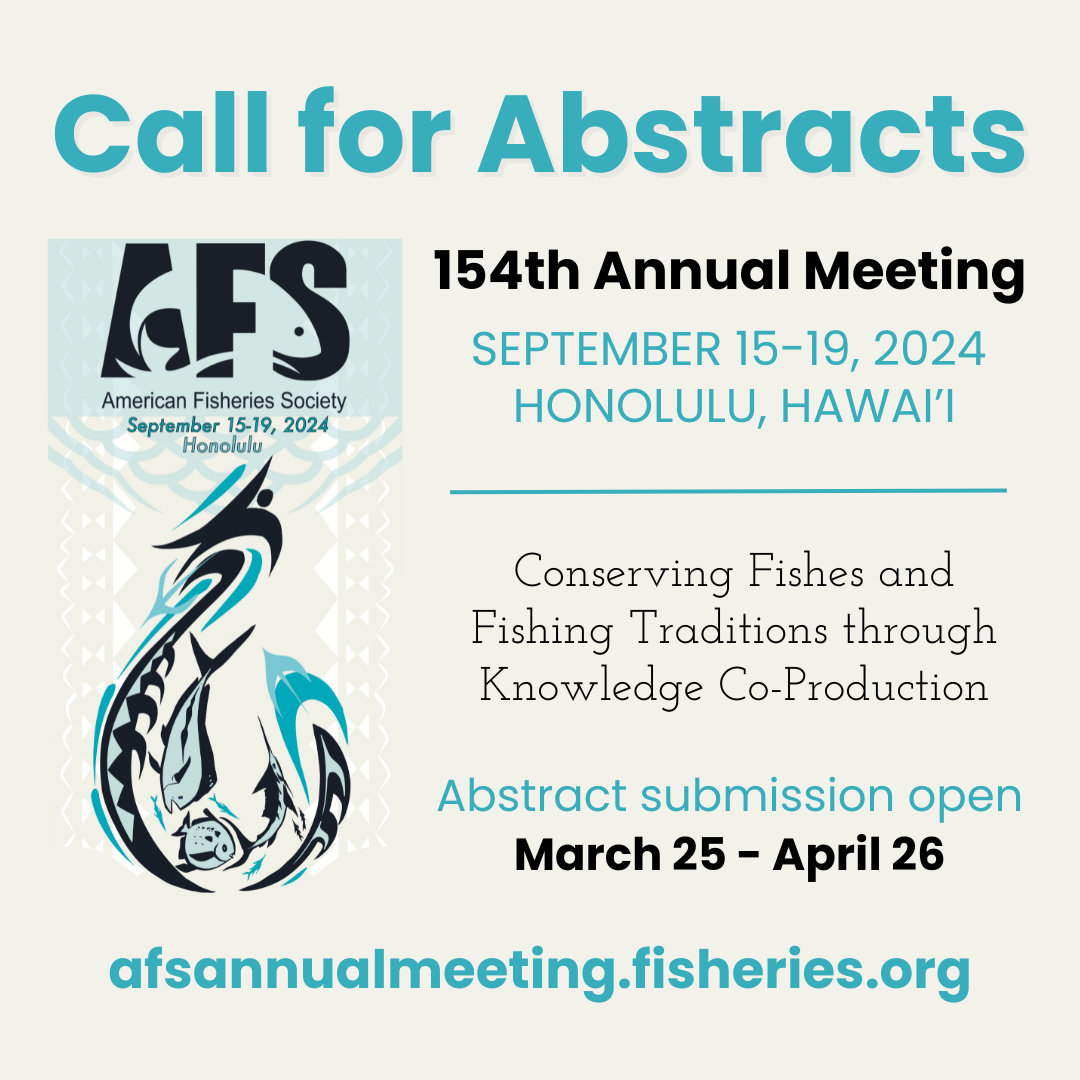The Recovering America’s Wildlife Act (H.R. 4647) – legislation that would dedicate $1.3 billion annually towards the conservation and monitoring of at-risk species at the state level – has just reached 100 co-sponsors in the House of Representatives. The American Fisheries Society has been working in concert with partner conservation organizations to secure co-sponsors.
The Blue Ribbon Panel on Sustaining America’s Diverse Fish & Wildlife Resources originally recommended the framework of this legislation in the spring of 2016.
The Senate version of the Recovering America’s Wildlife Act (S. 3223) – which requires funds to be appropriated by Congress each year – has just increased its co-sponsor count to six.
The Wildlife Society and the American Fisheries Society recently sent a letter (below) to the Senate Energy and Natural Resources Committee requesting funding for proactive wildlife conservation be folded into existing discussions on an overall conservation funding framework. These discussions currently include reauthorization of the Land and Water Conservation Fund and funding for the federal lands maintenance backlog – both of which will be brought up at a Senate Energy and Natural Resources Committee hearing on Oct. 2. AFS also signed onto a second letter with the Association of Fish and Wildlife Agencies, National Audubon Society, National Wildlife Federation, Pheasants Forever/Quail Forever, The Wildlife Society, and the Theodore Roosevelt Conservation Partnership.
If you are interested in learning more about the Recovering America’s Wildlife Act and how AFS members can support efforts to pass this legislation, contact Drue Winters ([email protected]). You can also check out the Reversing America’s Wildlife Crisis report, which details conservation successes to date and current funding needs in order to prevent state-identified at-risk species, known as Species of Greatest Conservation Need, from further declines.
AMERICAN FISHERIES SOCIETY ● THE WILDLIFE SOCIETY
September 28, 2018
Senator Lisa Murkowski, Chair
Energy & Natural Resources Committee
U.S. Senate
1324 Longworth House Office Building
Washington, D.C. 20515
Senator Maria Cantwell, Ranking Member
Energy & Natural Resources Committee
U.S. Senate
1329 Longworth House Office Building
Washington, D.C. 20515
Dear Chairman Murkowski and Ranking Member Cantwell,
On behalf of the American Fisheries Society and The Wildlife Society and our more than 18,000 members, we urge you to consider funding for proactive fish and wildlife conservation as you seek to address the maintenance backlog on our nation’s public lands.
The Wildlife Society and American Fisheries Society are dedicated to development of natural resource professionals, promoting science, and conserving fish and wildlife. Our organizations work to advance science-based policies that empower fish and wildlife professionals on the front lines of conservation in order to hold our nation’s fish and wildlife in the public trust.
Many fish and wildlife professionals are tasked with managing species on our country’s public lands. The “Restore our Parks Act” (S. 3172) provides resources to ensure current and future generations of Americans can enjoy the unrivalled landscapes, wildlife, cultural heritage, and recreational opportunities throughout our National Parks.
Unfortunately, more than one-third of all U.S. wildlife species are at-risk and in need of proactive conservation measures. Habitat loss and degradation, invasive species, disease, and pollution all pose threats to our wildlife. Without adequately managed, healthy populations of fish and wildlife on our public lands, the benefits provided through the improvement of recreational access and enhancement to these special places will be diminished.
The Recovering America’s Wildlife Act (S. 3223; H.R. 4647) would meet this need by proactively funding conservation of at-risk fish and wildlife species. Like the Restore Our Parks Act, the Recovering America’s Wildlife Act would direct a portion of existing energy and mineral royalties from federal lands and waters to fund the conservation and monitoring of state-identified at-risk species, known as Species of Greatest Conservation Need, which will allow Congress to adequately fund an existing proactive conservation funding model in a collaborative, non-regulatory manner. This legislation has attracted broad bipartisan support, as well as the support of diverse partners from industry to conservation organizations.
America’s public lands and wildlife are inextricably linked—and we are confident Congress can address the significant challenges facing both. As the Energy and Natural Resources Committee considers passage of S. 3172, we urge members to consider the importance of adequate fisheries and wildlife conservation funding within a comprehensive natural resources federal funding policy.
Thank you for your consideration.
Sincerely,
Jesse Trushenski
President
American Fisheries Society
Dr. John E. McDonald, Jr.
President
The Wildlife Society





